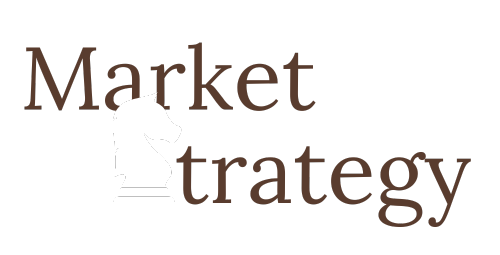However, with Google processing over 40,000 searches every second, being found in those search engine results is crucial. Ignoring SEO means missing out on a massive stream of potential customers actively searching for what you offer.
My personal journey into online marketing began over a decade ago. When I implemented SEO marketing digital strategies and started seeing real results, it fueled my dedication to this powerful method. Consistency and time proved the effectiveness of inbound marketing, solidifying it as a key part of my marketing strategy.
Understanding SEO in Digital Marketing
Why Focus on Google?
The Growing Importance of SEO
Key Elements of Effective SEO Marketing
Content and Keywords
Technical Elements
Building Authority and Trust
SEO in Action
Staying Agile with SEO Changes
Aligning SEO With Wider Marketing Efforts
Specific SEO Marketing Strategies
Building Link Connections
Keeping Up With Tech Shifts
The Role of SEO in Achieving Business Goals
Leveraging SEO for Increased Traffic
Long Term Planning with SEO
Conclusion
Search Engine Optimization (SEO) is essential for improving a website's ranking in search engine market. Improving a site's search engine presence helps businesses get more organic traffic from users actively seeking their products or services. It's like positioning your store on a high-traffic street, increasing your visibility and customer potential.
Effective SEO includes optimizing content creation with relevant keywords, building inbound links from reputable sites, and making your site user-friendly. These improvements enhance your site's visibility, domain authority, and overall user experience. These strategies improve your site for users and the engine land overall.
Google dominates the search engine market, plain and simple. Holding roughly 83% of the global market share, focusing your online strategies on what works for Google is a logical choice.
Google has become almost interchangeable with online searching. This provides marketers with direct access to users actively searching for information, products, and services. Being visibile to your target audience will do wonders for lead generation.
Consider this, if most people use Google, businesses must prioritize their visibility there. In 2022, Google generated over $279.8 billion in revenue, with 80% coming from advertising, highlighting the importance of appearing in its search rankings. With proper technical optimization, you will be setup for better success in your search marketing efforts.
With billions of webpages, standing out is increasingly challenging, yet more critical than ever. The global SEO industry is projected to reach $122.11 billion by 2028. This shows SEO's increasing significance as a core element of overall business strategies.
Google processes more than 8.5 billion searches daily. With constant searches for diverse information, effective SEO positions businesses directly in front of potential customers already seeking their offerings. The goal for any digital marketer is having their web content appear in those results.
Research indicates that over 25% of users don't look beyond the first page of search results. Having proper on-page seo and off-page seo is how to make that a possibility.
Achieving high organic search rankings depends significantly on your site's user experience and creating engaging web content. This means selecting appropriate keywords and having a user-friendly website. Excellent content is concise, offers genuine value, and thoroughly answers users' questions and search intent.
Valuable content is essential, but it must be easily accessible on all devices. Your website needs a strong mobile experience, as over half of global searches come from mobile phones. A poor mobile experience can deter users from returning so it's critical to do it right the first time around.
Begin by identifying which keywords are currently driving traffic to your site. Tools like Google Keyword Planner, Ahrefs, and Moz can provide this data.
These tools reveal the exact terms people enter into the search engine to reach your site. This provides direct insight into the keyword searches leading users to you. Content marketing with the right keywords is critical to boost your online presence.
When planning your content, keep the language clear and engaging for human readers. Good SEO balances relevant search terms with a pleasant reading experience. Effective SEO also ensures content creation is easily understood by search engines, so the information is indexed and discoverable to others online.
Examining your site's underlying technical aspects is essential. Technical SEO needs to take place for there to be no issues preventing search engines from indexing and promoting your pages. Address any duplicate content and do a technical optimization regularly.
This includes measures to ensure the site's structure allows search engines to crawl and assess it effectively. Proper configuration helps search engines quickly understand the content of your pages. Consider working with a professional if this area falls outside your expertise. This will help increase your click-through rate to view content that you build content for.
Gaining visibility in search results stems from establishing a strong reputation. Earning respect among users and search engines enhances your site's authority and improves its ranking. Creating compelling content is what drives better user engagement.
Search engines consider various factors, particularly links from high-authority websites pointing to your site. These inbound links serve as endorsements, signaling that your content is relevant and trustworthy within its niche. Increased brand awareness can be gained with further online visibility to your site.
Implementing a robust SEO strategy is best approached step-by-step. Below are several proven strategies that have reinforced my belief in Inbound Marketing:
Here's a quick checklist to improve SEO performance:
Review Competitor Keywords: Identify the top-ranking keywords of your competitors.
Check Searcher Phrases: Discover the terms people use when searching for your site or similar sites. Think about the questions they might have.
Write Content: Create high-quality, engaging content that answers users' questions. It should be valuable enough that people want to bookmark or share it, surpassing what your competitors offer.
These initial steps will significantly guide you in the right direction. These three factors can lead to a substantial and positive improvement in your search engine visibility and website traffic.
Changes impacting your site's visibility can seem continuous. By staying informed about the latest digital strategies, you can adapt quickly to major algorithm updates.
Some algorithm changes can have significant impacts. Google's "helpful content" update in August 2022 focused on penalizing pages that lacked valuable information. A subsequent update in September 2023 had even more profound effects.
Large sites experienced substantial declines. Some saw up to an 8% decrease in website visits.
SEO efforts are futile if users arrive at a poorly designed, slow-loading, and difficult-to-navigate website. It is important to deliver the desired user experience, mirroring what you'd expect when seeking information online.
With that perspective, prioritize a smooth user experience, ensuring quick loading times regardless of the device or landing page. If executed well, users will find what they're searching for, resulting in a higher conversion rate. It is crucial for the title tag and meta description to be written well.
Achieving targeted organic visits requires strategic planning, it's evident. Effective search engine optimization (aka SEO work) involves a thoughtful approach to establish ongoing success.
Link building will occur naturally over time. It happens when you consistently provide content that thoroughly addresses your audience's needs, prompting others to naturally reference it online.
Since I started online over a decade ago, sharing useful blog posts allowed me to build influence in various niches online. This organic referencing stems from the usefulness of the information provided on my sites. This first hand experience of success drives my focus with using multiple channels with social media marketing, email marketing, and other strategies.
Actively building link connections is still beneficial. Particularly in highly competitive fields like SEO marketing and other methods for ranking higher in google search.
Web searching has changed a ton recently. Many now have access to new search interface options, allowing hands-free interaction with devices.
Follow SEO News Sites: Regularly read blogs and news from reputable SEO sources. Look at sites like Search Engine Land. Stays informed about algorithm updates and best practices.
Use SEO Tools: Utilize tools like Google Analytics, Ahrefs, and SEMrush. Be sure to setup Google Search Console to monitor and act on critical findings. Provides data on website performance, keyword rankings, and backlink profiles.
Engage in Communities: Join online forums, social media groups, and professional networks. Be active on various social media platforms to stay relevant. *Facilitates knowledge sharing and learning from other experts.
Attend Webinars and Conferences: Participate in online and offline events focused on digital marketing and SEO. Offers insights into emerging trends and networking opportunities.
Experiment and Test: Regularly test new strategies and monitor their impact on rankings. Helps understand what works best and adapts to changes quickly.
It's important to recognize that buyers may not convert on their initial visit. Some visitors need time to evaluate their options. You will be closer to your goals with further marketing automation to your website and processes.
Reiterate the importance of providing informative content that genuinely assists users. Visitors want immediate access to solutions, and delivering precisely what they seek, on their terms, enhances their search experience and fosters long-term success for all parties involved.
Free, organic traffic significantly aids business growth. A Sagefrog report highlighted SEO's impact, with almost half of businesses integrating it into their current and future strategic planning. The right marketing tool can really drive your website to success.
SEO's popularity continues to surge annually, with over 31% of businesses prioritizing it in upcoming budget requests. Employing an inbound strategy ensures that your future website traffic consists of a highly targeted audience.
Adopt a long-term growth perspective. Plan to integrate ongoing site adjustments in response to new Google updates. Paid media might give you quicker growth initially but SEO builds a more consistent future.
Stay vigilant and adaptable to changes as they are announced. This continual evaluation ensures your long-term marketing digital strategies remain effective. In the end, consistent SEO is not about set-it-and-forget-it. Always have your ongoing SEO efforts be top of mind. Google is a key ranking factor for what people find.
Mastering SEO may initially seem intimidating due to its complexity and the time investment required. Success with ongoing SEO practices and a clear digital marketing strategy require providing value, focusing on user search intent, and consistently delivering quality content.
My decade-long journey in online marketing confirms that SEO marketing digital strategies deliver substantial long-term success. Results come from applying key SEO tactics that will certainly benefit those seeking help.
.png)










